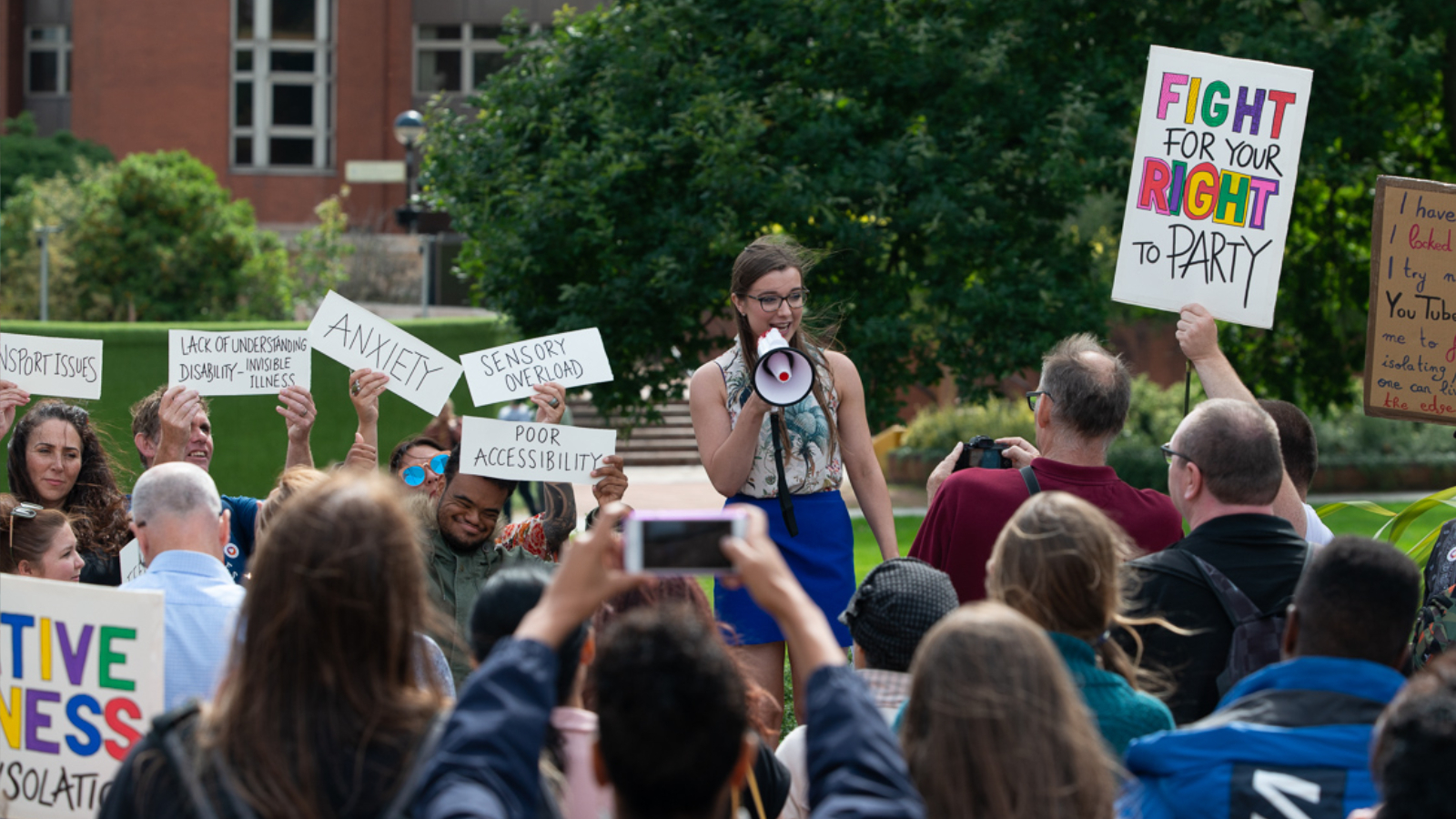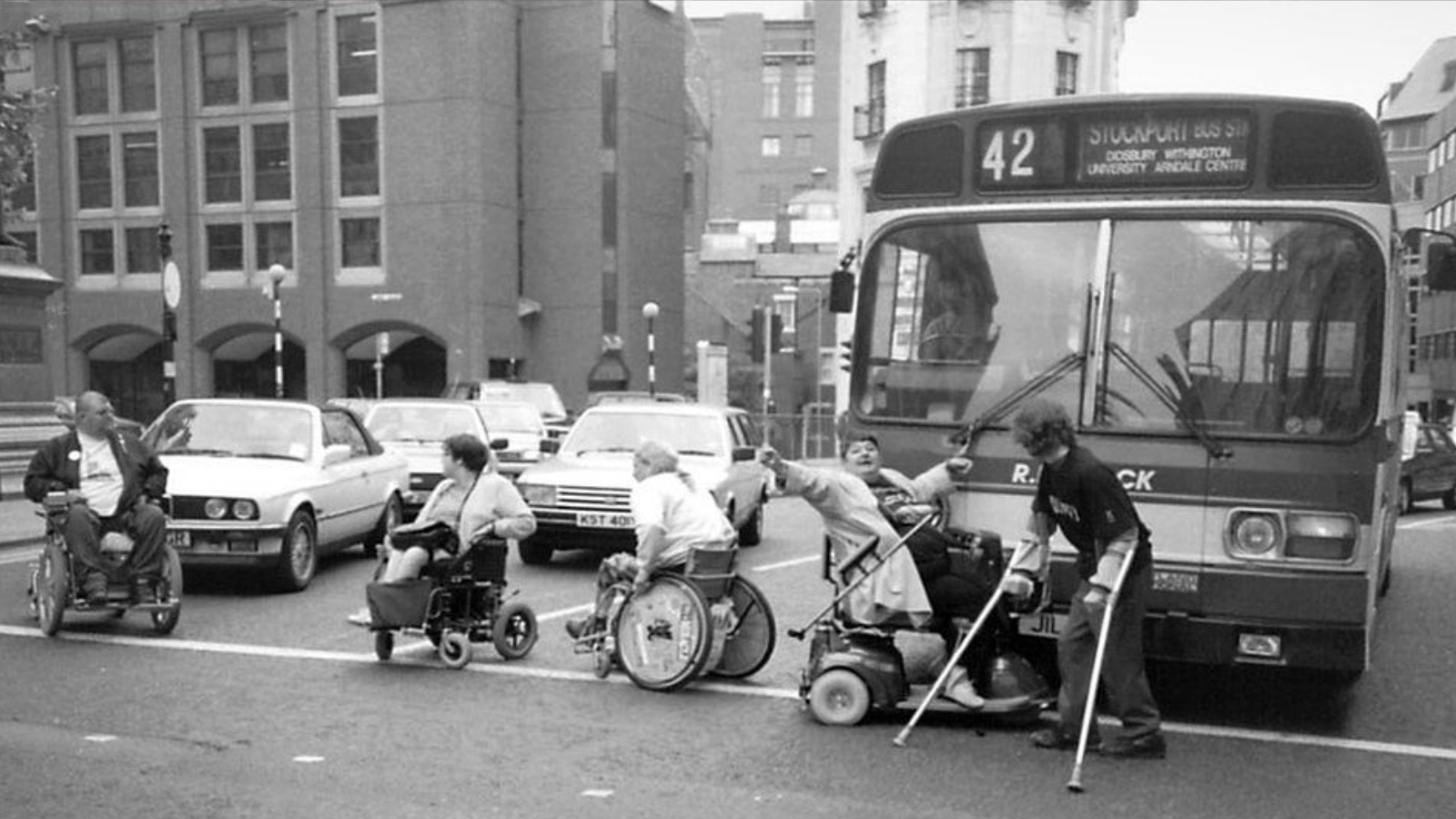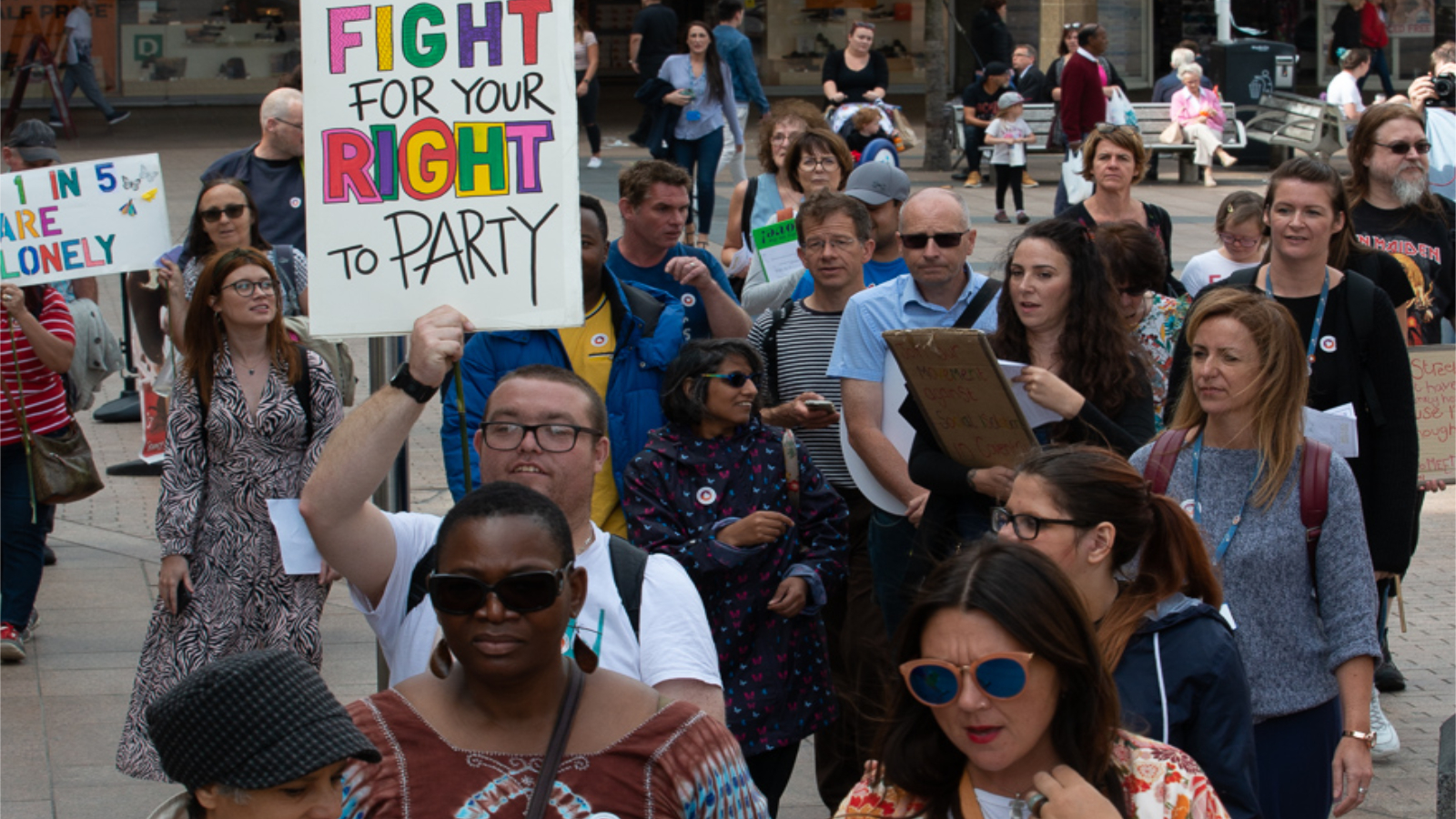Voices
How Do We Connect Each Other For Good?
Transforming a city through organised community power.
Stephanie Wong | 19 Mar 2021

Grapevine Coventry and Warwickshire (Grapevine) and Act Build Change (ABC) came together to develop a community organising methodology to grow a movement of 3000 people from isolation to powerful connection. The movement is called Connecting for Good (CfG), and it is organising places to listen, plan, dream, build leadership and take action. We aim to collectively grow the infrastructure and tools to help spark action against loneliness and isolation.
Why community organising? Well, it has a long history of people acting to build their collective resources and turn them into the power they need to win change. Anyone interested in community power, relationship building and systems change should be interested in community organising. CfG’s purpose is to grow an ecosystem of connection across Coventry so that everyone in the city has the potential for love, friendship and power. This work is built on Grapevine’s 25-year legacy of disability justice work, challenging the norms of who can and can not contribute.
Social isolation is the distancing of an individual from a wider network of relationships. It’s the heightened sense of having a limited access to worlds beyond one’s own.
I will share 7 organising methods for the next 7 weeks that challenge and at the same time return me to the fundamental lessons of community organising and the importance of building community power. These observations come from training organisers within Connecting for Good (CfG), a movement against isolation in Coventry fostered by Grapevine. These fundamentals have been drawn from the traditional organising methodology taught by Saul Alinsky and the organisers that followed his teaching tradition.
- Who Gets to Organise?
- Who do we build relationships with?
- Who do we listen to?
- Who gets to lead and take action?
- How do we engage with institutions?
- How do we do all of this sustainably?
- What does transformative organising look like?
This writing is not to displace or discount all the ways of organising or relationship-building to shift power for systemic change. I have respect for all of us attempting to make this world better. This is an invitation for more of us to organise with greater bravery and patience. I believe Grapevine’s work has something to contribute to this conversation.
Who Gets to Organise?
The organiser is in a true sense reaching for the highest level for which man can create, to be a “great creator” to play God.
Much of the paid community organising profession is steeped in ableism and whiteness. Organising was developed and strengthened by women of colour, in particular black women, such as those from the Freedom movements in the 1950s and 60s. Women like Ella Baker, Dorothy Height, Diane Nash and many others. Organising has also been fundamentally shaped by disabled communities who we owe so much to our understanding of creative disruption and civil disobedience.

Today, the #MillionsMissing movement periodically lays empty shoes in public spaces to represent the 25% of ME patients who are unable to leave the house. In 1995, protestors threw themselves out of their wheelchairs and onto the floors of train carriages, in protest of inaccessible public transport.
Yet, we are not representative when we look at the paid community organising profession in the UK charity sector. The organising methodologies that dominate teaching programmes still center the white “founding fathers”. The middle class, straight, white able bodied male is the norm and overlooks the most senior roles in organisations.
I make this observation from a space of relationship with all organisers, disruptors and those who work hard to bring people together across differences. I want to play a small role with thousands of others to advance our work as organisers so more of us can create powerful connections to transform our country into a place of loving sustainability. As syrupy as this sounds, it is the only way I believe we will all be able to live with joy and dignity so that no one feels powerless. I respect all efforts in this project and to anyone trying, trying, trying…I and a whole web of others are listening, learning, listening.
I believe when organising institutions are not representative of the world around us; this impacts how we imagine the “world as it should be”. This affects who gets to live, participate and thrive in the “world as it is” and act in our campaigns. We show up to places and share our energy when we feel respected and seen. If we can not see ourselves in the organisations that ask us to engage, how can we be expected to leap into uncertainty and act with it?
I often feel I am trapped inside someone else’s imagination and I must engage my own imagination in order to break free.
At Grapevine, I am coaching some of the finest organisers who live with chronic pain and long-term illnesses and caring for and being cared for by their disabled loved ones. They challenge who can and can’t organise, lead, or strategise. The success of Grapevine’s organising moves at the pace of trust in the relationships they build. There are no Gods or martyrs, and humility is regarded far higher than ego. They’re not letting the received wisdom of our “founding fathers” stop them from broadening participation in our profession.

In Coventry, people are organising like their lives depend on it. And for some people in the room, it does. People like George, 54 who has a history of enduring mental health issues, PTSD, suicide attempts and being failed by services. Or Derek, 70, who experiences regular brain bleeds and last week called us to ask for support to develop an idea for which he has already recruited two people.
So, what does a representative revolution look like? How could we end loneliness with the isolated leading? How do we share space for more people to organise and be powerful so we live up to the value of connection, where no one is left behind?
It means we are not left behind; we are beloved, kindred, needed.
The following six blogs provide some reflections on how Grapevine and Act Build Change attempt to wrestle with these questions. I’m not saying any of this is new or that we know better. I am certainly not saying we are getting it all right. But I want to contribute to a craft I fundamentally love and is transformative to shifting power into the hands of our communities. Know that if you discover moments of wisdom, it likely come from others: Grapevine and the CfG movement, from our ancestors, my friends and present-day organisers. To all of you, I give thanks and gratitude.
Task
Reflection Questions
- How are you making space for more of us to show up and organise?
- What are the struggles you are having in relationship building?
- What is the help you need?
- What are the individuals/groups you are working alongside struggling with?
- Is there support they need?
- Have often are you asking this question directly with those you work with?
This is the first in a series of posts about our work with Grapevine: